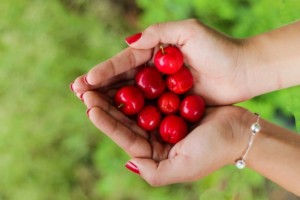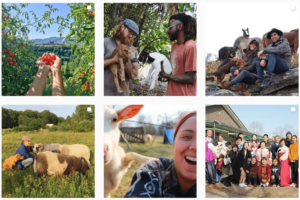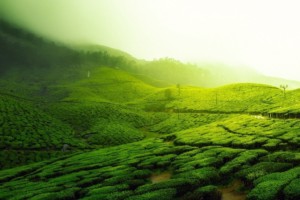From subsistence to something special: The rise of luxury agritourism
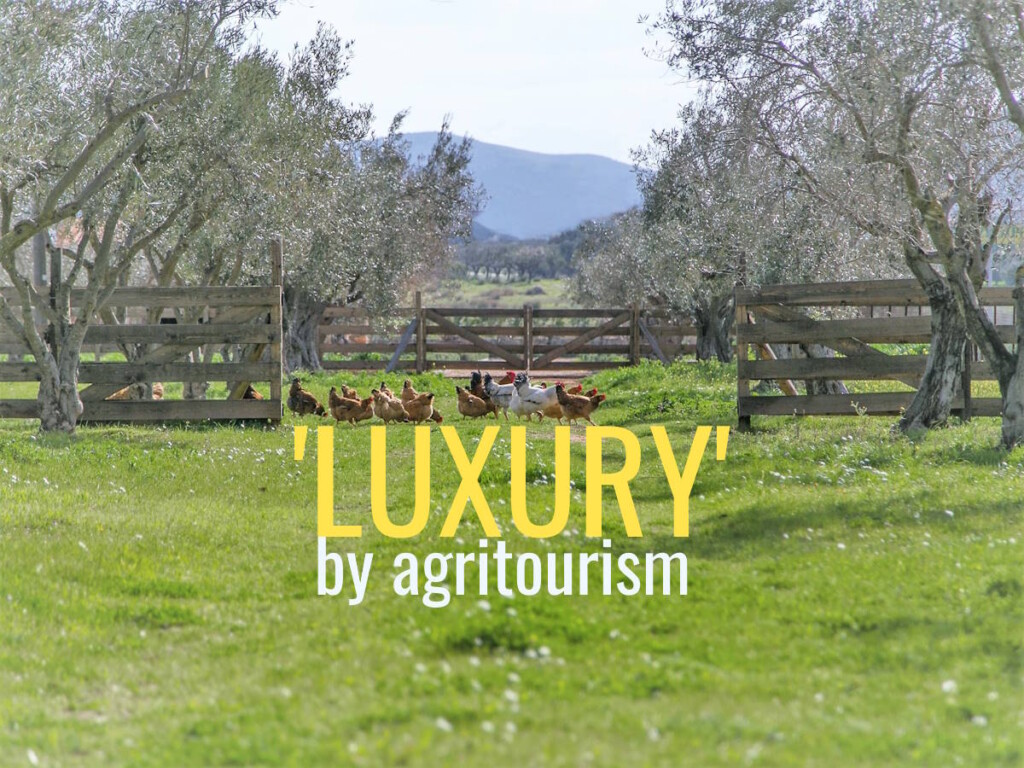
Most farmers throughout history have struggled to survive let alone thrive. This remains the case in many places.
That’s why the opportunity to earn supplemental income from agritourism is very appealing to many farmers.
Now, while agritourism continues to grow, the concept of ‘luxury’ is evolving to include an appreciation of local authenticity.
Could the world’s traditional agriculturists be sitting on a luxury agritourism gold mine?
It’s a “Good Tourism” Insight by Stefania Fren.
[You too can write a “GT” Insight.]
Agritourism is not a new trend, but it is evolving; developing new forms, new markets, and new objectives.
Agritourism’s initial purpose, in the period following the second World War, was to reduce the massive flow of European populations from rural villages to the big urban centres, and to help smaller farms compete with larger industrial farms. In other words, to keep the rural activity alive.
With its roots in the rural areas of Italy, the term agriturismo or ‘agritourism’ gained prominence in the 1970s and 1980s.
Don’t miss other “Good Tourism” posts tagged ‘Rural tourism and agritourism’
The Italian government realised the benefits of agritourism in economic, social, and environmental terms. In 1985 it passed legislation that provided significant fiscal incentives for this type of sustainable tourism.
Agritourism has laid the foundations to help revitalise rural communities and preserve local customs while offering travellers a taste of traditional country life; a real win-win!
The term ‘agritourism’ has become commonly used outside of Italy and has gained in popularity in almost every corner of the globe.
What is agritourism?
The term has various definitions. According to the Food and Agriculture Organization, agritourism refers to “the symbiotic relationship between tourism and agriculture”.
It is also known as ‘farm tourism’, ‘farm stays’, or ‘farm holidays’.
This type of lodging offers travellers the opportunity to participate in the inner workings of a farm, learn about a territory’s history and culture, and build a strong connection with nature within a farm, winery, or ranch.
For example, at the Margi — where I am an intern — a five-star boutique hotel and farm in a rural area on the outskirts of Athens, Greece, visitors can participate in farm activities, such as tending to livestock and harvesting.
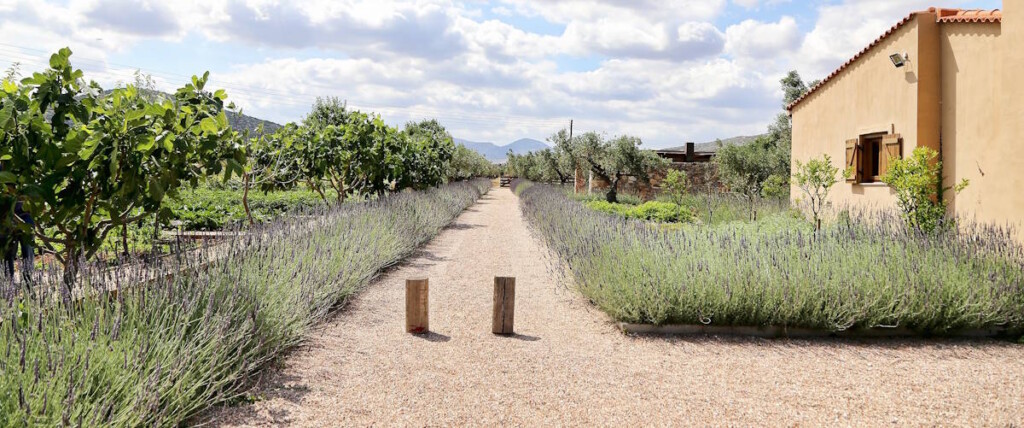
Other related activities that one can experience at the Margi include visiting olive groves and vineyards, tasting their respective products, and enjoying sumptuous meals prepared with locally-sourced ingredients.
In general, during their stay at an agritourism facilitator, guests have the opportunity to learn more about local agriculture and its reliance on the sustainability of the environment and the regularity of annual weather patterns.
What types of agritourism are there?
Various types of agritourism have been identified (e.g. in Italy) based on the type and intensity of tourist participation, while other forms are continuously emerging.
Agritourism categories of experience include:
- Non-working farms;
- Working farms with passive contact;
- Working farms with indirect contact;
- Working farms with direct contact (staged); and
- Working farms with direct contact (authentic).
Additionally, agritourism can be categorised according to the type of accommodation offered, such as holiday farm resort, farmhouse bed-and-breakfast, basic camping, and ‘glamping’ (glamorous camping).
And, of course, the agritourism experience will be hugely affected by where it is located — mountains, plains, coast, the size of the rural community, and its proximity to urban centres — and the type of agriculture.
Each type of agritourism offering makes its own contributions, both positive and potentially negative, to the rural host community, the local environment, and to the evolution of this travel trend.
Why is agritourism trending?
Agritourism offers great advantages to visitors, farmers, and rural communities:
- Away from mass tourist spots, guests can enjoy relatively affordable accommodations, local food, and warm hospitality, and (for a brief period) become a part of an authentic village community.
- The change of pace, outdoors-orientation, and physicality of agritourism provides visitors with health and wellness benefits, especially for city-based visitors.
- Visitors have the opportunity to learn and experience new things, particularly around culture and lifestyle.
- Visiting children (and adults) can take away some important lessons about where their food comes from, the importance of environmental sustainability and animal welfare, and the challenges and rewards of farming.
- Agritourism can provide a valuable source of income for farmers; a chance for them to participate in the value-added tertiary (service) sector of the economy in addition to their vital role in the primary sector of the economy.
- In addition to the economic benefits for farmers, agritourism can stimulate the broader local economy through greater expenditure on other local goods and services by visitors and farmers.
- By showcasing to visitors the importance of agriculture to not only rural communities but also how it is a vital support to cities, agritourism can play a significant role in the preservation of rural culture and heritage.
As it gradually develops, agritourism is booming in popularity especially in the post-pandemic period with travellers not only seeking authentic experiences, but also consciously choosing environmentally- and socially-responsible tourism.
Luxury agritourism: A contradiction?
“Luxury, by definition, means something that appears to be the best of whatever it represents …”
Isadore Sharp, founder, chair, and CEO of Four Seasons Hotels & Resorts.
‘Luxury’ is generally associated with very expensive items and exclusive, private services. These are usually understood to include branded goods; first-class travel; private jets, yachts, villas, and beaches; fine dining experiences; and so on.
Nowadays, the concept of luxury is not as strongly associated with such things. Wealthy travellers are increasingly choosing out-of-the-ordinary ‘luxury’ experiences.
Today’s luxury traveller has a greater understanding of the intangible and immaterial dimensions of luxury. They increasingly seek things that money cannot buy. They want ‘authentic’ personalised experiences.
As a result, luxury customers — more mature and demanding than ever — are searching for new concepts in luxury accommodation and experiences. They don’t just want to see, they want to participate!
This has implications for travel, tourism, and hospitality service providers, including those who would offer agritourism experiences.
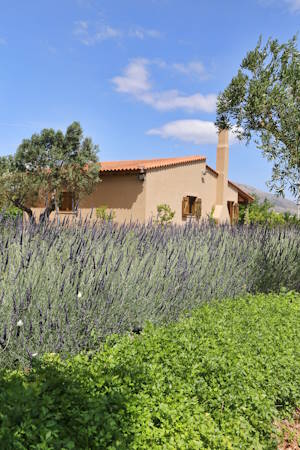
There are luxury hotels in Greece, for example, that offer travellers the chance to connect with the land and the local people, learn about the country’s rich history and culture, and get a good taste of the regional gastronomy and local customs.
The Margi Hotel is a good example of luxury agritourism in Greece. Affiliated with Margi Farm, it provides visitors with a luxury agritourism experience that features organic local produce, authentic local cuisine, and personalised private tours and experiences.
Margi Hotel’s guest relations manager Afroditi Solomou told me that the hotel’s guests are modern luxury travellers who seek authenticity in regional cuisine, interactions with local staff and people, and natural surroundings. They want a memorable escape from the urban setting; holistic experiences that blend sensory and spiritual luxury.
The exclusive combination of comfort and a connection with the land is what makes luxury agritourism a highly sought-after experience for some wealthy travellers.
It is true that new travel trends are emerging all the time.
With agritourism we wait to see what other forms it will take in the future, and whether it will continue to rise as a high-value luxury tourism niche.
Author’s note: My thanks to Afroditi Solomou whom I interviewed while researching the paper that is the basis for this “Good Tourism” Insight. And thanks to everyone at Margi Hotel and Margi Farm for the memorable internship experience.
What do you think? Share your own thoughts in a comment below. Or write a deeper “GT” Insight. The “Good Tourism” Blog welcomes diversity of opinion and perspective about travel & tourism, because travel & tourism is everyone’s business.
“GT” is where free thought travels.
Featured image (top of post): Luxury agritourism with free-range chickens at Margi Farm, Greece. Images supplied by Stefania Fren.
About the author

Stefania Fren is Master’s student in Events and Tourism at SKEMA Business School, France. Ms Fren is interested in high-end hospitality and events.


